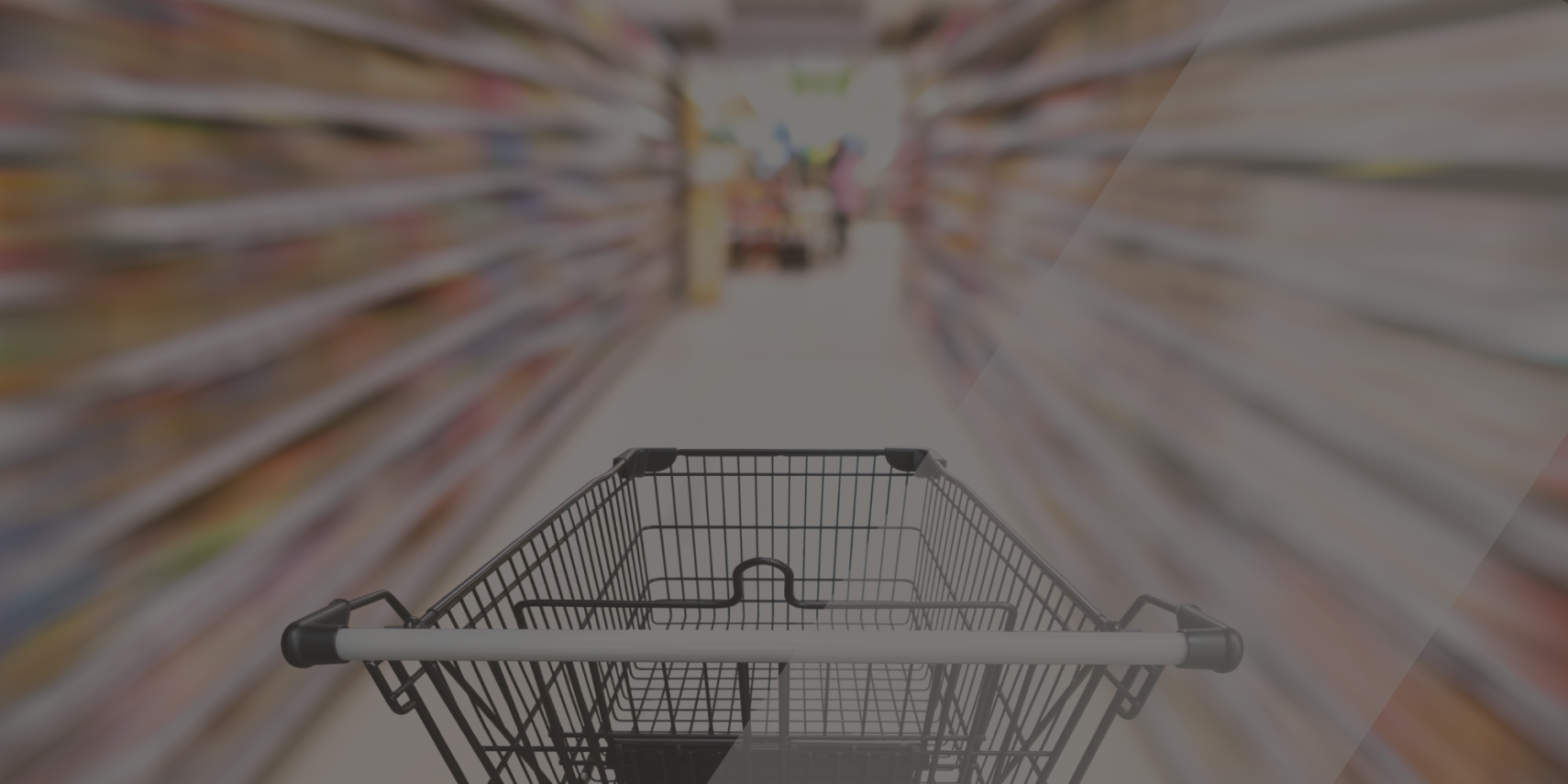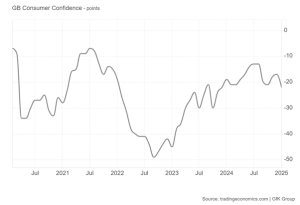Latest
What Consumer Confidence Means for Retail in 2025

Consumer confidence in the UK has dropped, with the GfK Consumer Confidence Index falling to -22 in January 2025 – the lowest since December 2023.1 All five measures of the index declined, showing growing concerns about the British economy.
Neil Bellamy, Consumer Insights Director at NIQ GfK, said:
“There are particularly steep falls in consumer views on the wider UK economy, both looking back a year and at what’s in store for the next 12 months… [This is a] sign that people see dark days ahead and are therefore thinking of putting money aside for safety.”
For retailers, this signals a challenging period ahead. As household budgets tighten, businesses must adapt to shifting consumer behaviour, rising costs and uncertain economic conditions. Those who can optimise their spending and streamline operations will be better positioned to weather the storm.
Why Has Consumer Confidence Fallen?
The decline in consumer confidence reflects a combination of economic pressures that are making people more cautious about spending:
Stagnating Economic Growth
The UK economy showed unexpected growth in Q4 2024, with expansion in the construction and services sectors.2 However, concerns remain as GDP growth was flat in Q3 2024, and business confidence is being tested by rising costs and tax increases. This uncertain landscape has led to fears of a “stagflationary” environment, where slow growth meets persistent inflation, making it harder for businesses and households to plan for the future.3
Persistent Inflation
Inflation remains stubbornly above the Bank of England’s 2% target, recently rising to 2.5% and it could exceed 3% in the next few months. Higher living costs are leading to cautious spending habits. City traders have warned that inflationary pressures could limit the Bank of England’s ability to cut interest rates significantly in 2025, keeping financial conditions tight for consumers.
Interest Rate Cuts and Their Impact
After maintaining interest rates at 5.25% for much of 2024, the Bank of England has started to ease rates, cutting them to 4.5% in February 2025. While this provides some relief, policymakers remain cautious about further reductions due to inflationary pressures. This means borrowing costs for businesses and households will remain relatively high, limiting investment and consumer spending.
Rising Employer Costs
From April 2025, employer National Insurance (NI) contributions will increase from 13.8% to 15%, alongside a lower threshold for payments.4 These changes could put additional pressure on businesses, leading some to scale back hiring or pass on costs to consumers. Combined with the upcoming minimum wage increase, which will raise costs for retailers and other businesses, this could further slow economic growth.
Financial Pressures on Businesses
Economic uncertainty and rising costs are leading some businesses to restructure or scale back. The retail sector faces challenges with reduced consumer spending and global trade tensions, including US tariff changes that could affect imports. This threatens disruption for industries reliant on complex supply chains, which can further weaken business confidence and limit investment.5
The Immediate Impact on Retail: Challenges Ahead
Retailers are facing a tough environment, with inflation, rising interest rates, and increased business costs squeezing household budgets. Consumers are cutting back on discretionary purchases, making it harder for businesses to drive sales. At the same time, wages and supplier costs are climbing, putting pressure on margins and forcing many retailers to choose between absorbing the costs or passing them on to customers.
Investment decisions are also becoming more uncertain due to higher borrowing costs and shifting consumer habits. The Savings Index, which tracks people’s motivation to put money aside, has surged. As Neil Bellamy explains,
“While the savings index on motivation to save money is not included in the calculation of the overall index score, it’s notable that it has leapt nine points in January to +30.”
Despite the downturn, confidence tends to follow economic cycles. The UK has seen a slow recovery since the pandemic.6 Factors like wage growth and increased savings could eventually fuel higher consumer spending once economic conditions improve.
Ellie Henderson, an economist at Investec, highlights the potential for a turnaround.7
“If confidence was to pick up, consumers in aggregate have the means to unleash a higher level of consumption. That confidence recovers soon though is less certain.”

The key question is when confidence will return and how businesses can position themselves to weather the storm in the meantime.
How Retailers Can Adapt and Win
Economic uncertainty means it is crucial for retailers to be efficient. Using marketing technology like Productcaster helps businesses optimise both their time and budget so that it can be spent in the most effective way.
What are the benefits of using CSS and Feed Management Solutions?
Cost Savings
Using a third-party CSS like Productcaster can save businesses up to 20% on CPCs, meaning they can spend their budget more efficiently and get more traffic for less. Investing in a feed management solution, like FeedManager, reduces operational costs by automating product feed management.
Time Efficiency
By leveraging technology and automation retailers can save valuable time that can then be spent on strategic activity. Using FeedManager means optimisations are automated which means less manual optimisation and more time saved.
Award-Winning Support
Productcaster CSS and FeedManager were built by marketers, for marketers so we deeply understand the market needs. When you work with Productcaster you benefit from shopping and feed experts who can support with best practice and strategic testing opportunities. Our team was recognised as the Product Experts in the 2024 Google CSS Spotlight Awards.
Adopting a Flexible Approach
Retailers need to stay agile to respond to changing demand. Automation reduces errors and saves time, allowing teams to focus on strategic decisions instead.
The latest drop in consumer confidence reflects the pressures facing the UK economy, but businesses that take a strategic approach can navigate these conditions effectively. While the next few months may be challenging, history has shown that confidence rebounds and resilient retailers will be in a strong position when the recovery takes hold.
Using marketing technology like Productcaster is an easy way to remain both time and cost efficient in a turbulent economic climate. Plus, our expert guidance can help you better optimise your shopping strategies. Book a demo with us today and see how Productcaster can support your business, no matter the challenges ahead.
Written by Emily Woodcock
Ready to switch? Let’s get started.
Book a Demo